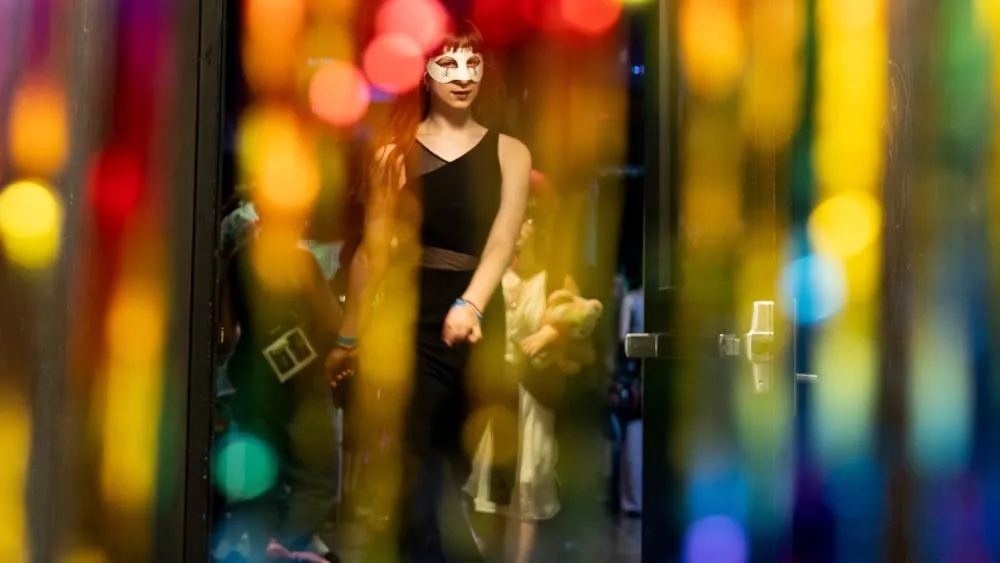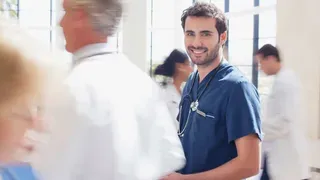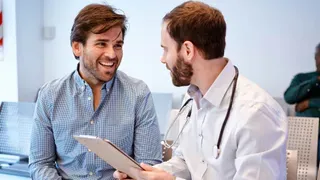May 14, 2007
MA Attorney General pledges support for Goodridge
David Foucher READ TIME: 4 MIN.
Pledging to do "whatever I can personally and in my office" to ensure that marriage equality remains the law of the land in Massachusetts, Attorney General Martha Coakley told attendees at the Massachusetts Lesbian and Gay Bar Association (MLGBA)'s annual dinner on May 11 that she would support an effort to challenge the constitutionality of a proposed anti-gay marriage amendment should it pass at the ballot box in 2008.
"I think that we can easily anticipate that if - and I say only if - the proposed amendment were successful there would be protracted, hard-fought litigation about the constitutionality of such a provision," Coakley told the crowd at the Royal Sonesta Hotel in Cambridge. "If that battle is necessary you have my support."
Coakley quoted at length from the July 2006 dissenting opinion in Schulman v. Attorney General, a lawsuit filed by Gay and Lesbian Advocates and Defenders (GLAD) that unsuccessfully sought to have the amendment declared unconstitutional, in which state Supreme Court Justices John Greaney and Roderick Ireland asserted that, "the Goodridge decision may be irreversible because of its holding that no rational basis exists, or can be advanced, to support the definition of marriage proposed by the initiative and the fact that the Goodridge holding has become part of the fabric of the equality and liberty guarantees of our Constitution." The justices suggested that the court would consider resolving the matter "if an appropriate lawsuit is brought."
But Coakley also strongly asserted her belief that the state legislature should dispose of the amendment, which resulted from a citizen's petition brought by the group VoteOnMarriage.org, before it becomes fodder for a divisive 18-month ballot initiative campaign. "I strongly encourage our legislators to defeat it and to close the door once and for all on prejudice and unequal treatment," said Coakley. "I believe that they can vote consistently with their own consciences and the will of the public, as they do on almost every other issue they face every day, to say they will not pass a statute in effect with no rational basis and which would limit or curtail rights which are guaranteed today by our constitution."
Coakley's remarks, which were repeatedly punctuated by applause, came as pro-equality activists wage an intense lobbying effort to defeat the amendment, on which lawmakers are expected to vote for a second and final time at a constitutional convention on June 14. The amendment needs just 50 votes at the convention in order to be placed on the 2008 ballot.
Taking on critics who say marriage equality undermines the institution of marriage, the attorney general asserted, "I think that the institution of marriage is alive and well in the Commonwealth. It has been made more inclusive." She praised the "seamless integration of what has been an ancient institution - marriage - with a modern but welcome recognition of the reality of the diversity of sexual orientation, which has made our state stronger."
She also offered her thoughts on the notion that same-sex marriage is harmful to children. "There's absolutely no evidence of that and if anything, children raised by same-sex couples reap the benefit from the possibilities that Goodridge opened up," said Coakley. Citing her previous experience prosecuting child abuse cases as chief of the Child Abuse Prosecution Unit in the Middlesex District Attorney's Office, Coakley asserted, "there's certainly no ability of heterosexual couples to say that we're better at marriage or raising children. I certainly know that the most important thing for children is love and stability and I think the decision in Goodridge ... to allow same-sex marriage in Massachusetts is incredibly important for that."
Though she did not mention the legislation specifically, Coakley also seemed to indicate support for pending legislation to amend the state's hate crimes and anti-discrimination statutes to include protections based on gender identity, efforts that are being in lead in part by the MLGBA. Noting the brutal killing of Matthew Shepard nine years ago, Coakley noted that "members of the GLBT community still remain at risk for discrimination in schools, employment and places of accommodation as well as being targeted by hate crimes. We cannot allow hate to occupy any legal space in Massachusetts," she said.
"We cannot legislate hate away," she added, "but we can hold those accountable who act upon it. And it's also why it's so important for us to change the hearts and minds of those who would act on it and implement effective civil rights programs in our schools. We need to start now in this generation."
Coakley, who took office in January, stands in stark contrast to her predecessor Tom Reilly on LGBT rights, particularly on the issue of marriage equality. Though his vigorous defense against the Goodridge lawsuit and his initial opposition to the SJC decision in the case mellowed into tepid support for the status quo, Reilly offered little to no support in the battle to preserve to marriage equality.
The difference between the two attorneys general was not lost on guests at the MLGBA dinner, who applauded repeatedly throughout Coakley's speech and gave her two standing ovations. And in what's probably a rare instance of a lawyer being at a loss for words, MLGBA Co-Chair Christina Miller could only utter "Wow," upon taking the stage after Coakley wound up her speech. Co-Chair Charles Wagner didn't fare much better. Said Wagner, "How'd that happen?"
David Foucher is the CEO of the EDGE Media Network and Pride Labs LLC, is a member of the National Lesbian & Gay Journalist Association, and is accredited with the Online Society of Film Critics. David lives with his daughter in Dedham MA.







